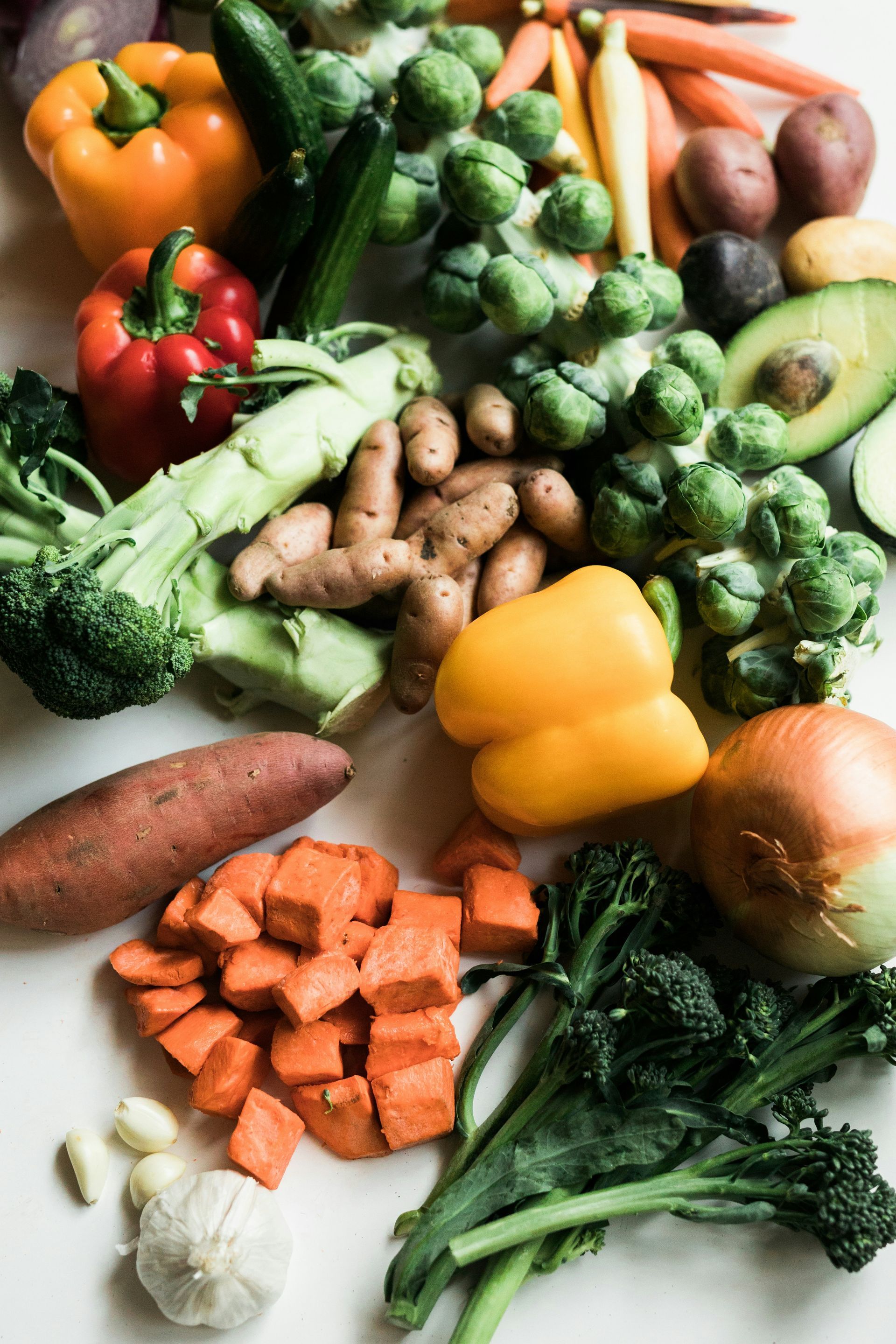Eat your Veggies!
Is eating your veggies really that important? Cindy Williams, RN, health ministries coordinator at UCC shares why eating your veggies is so beneficial to your health.
By Cindy Williams, Rn
Coordinator, Health Ministries
“Eat your veggies!” I wonder how many of us grew up hearing this on a regular and frequent basis and struggled to do it. The table in my childhood home didn’t offer many options other than vegetables and fruits so I might have always been hungry if I didn’t eat them. I happen to like vegetables a lot. Students in my high school health class asked me recently what my favorite vegetable is, and I couldn’t really give an answer. I like them all. I do like some methods of preparation better than others though.
Research has been accumulating that proves your mom was right to encourage you to eat your veggies. We know that a diet rich in fruits and vegetables can prevent some types of cancer, help regulate blood sugar, lower the risk of digestive problems, may help prevent cataracts and macular degeneration, lower blood pressure, and reduce the risk of stroke and heart disease. The strongest evidence is on the reduction of heart disease and stroke.
A review of data from the 1999-2014 National Health & Nutrition Examination Survey showed that “Greater vegetable variety and amount are associated with lower prevalence of coronary artery disease”.
A 2019 review of the results of observational epidemiological studies concluded that “intake of leafy green and cruciferous vegetables may confer strong cardiovascular health benefits”.
Research conducted by Edith Cowan University over a 23-year period found that people may be able to significantly reduce their risk of cardiovascular disease by “simply eating one cup of raw (1/2 cup cooked) nitrate-rich vegetables each day”. Nitrate-rich vegetables include spinach, kale, Swiss chard, arugula, celery, and beets.
Mom was right. Of course, these are the foods that God gave us in the beginning. He certainly knew what He was doing!
Here are some ideas to help you eat more fruits and vegetables every day:
- Choose something new from the produce aisle every time you shop for groceries. You can find recipes and instructions online on how to use every kind of fruit and vegetable from anywhere in the world.
- Eat at least one serving from every color of the rainbow every day.
- Try recipes that make vegetable the star. Salads, soups, curries, and stir-fries make wonderful main meals with the addition of legumes and peas.
- Prep your fruits and vegetables when you bring them home. You are much more likely to eat them if you only need to pull them out of the refrigerator ready to go. There are storage tips on the Internet that will help you preserve your investment.
- Don’t give up if you don’t love a particular vegetable or fruit. Try something else or find a completely different way to prepare the one you didn’t care about.
Resources
Cardiovascular Health Benefits of Specific Vegetable Types: A Narrative Review
One cup of leafy green vegetables a day lowers risk of heart disease
The 13 Healthiest Leafy Green Vegetables
Eating 1 Cup of Green Leafy Vegetables Can Support Heart Health
The Nutrition Source: Vegetables and Fruits













